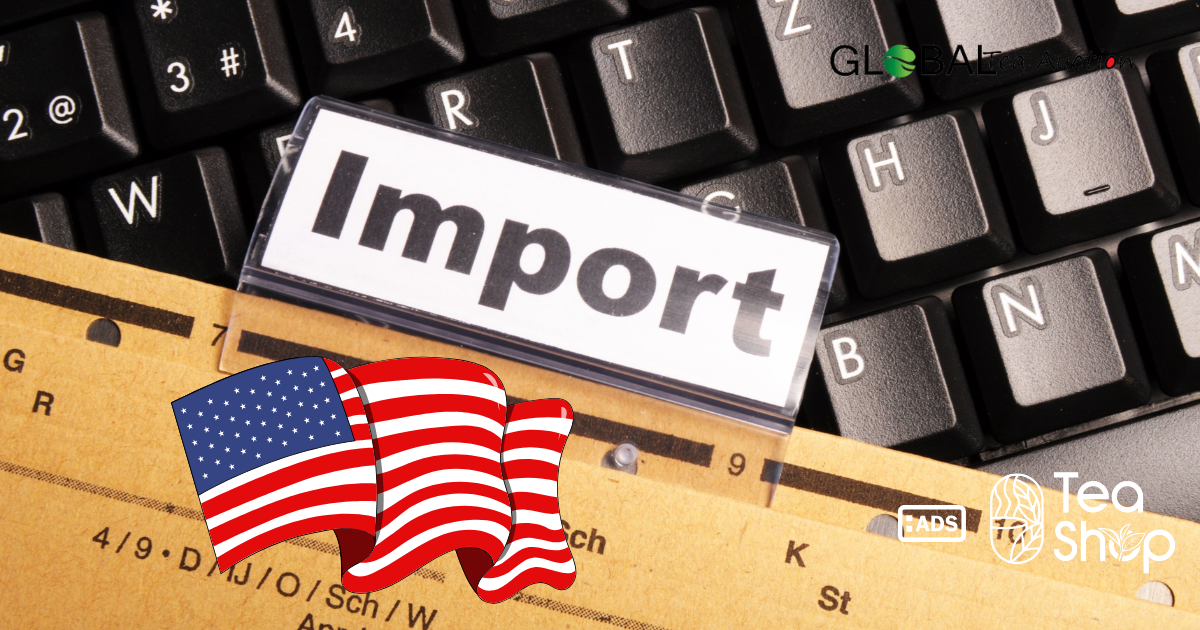How U.S. Tea Importers Can Leverage Global Online Auctions for Better Pricing
In the contemporary landscape of global commerce, the tea industry is not immune to the sweeping changes brought by digital transformation. As a U.S. tea importer, understanding how to leverage global online auctions is pivotal. These digital platforms are revolutionizing how we source tea, offering a unique opportunity to maximize profits by securing better pricing and expanding our supplier network.
Global online auctions provide a dynamic marketplace where tea importers can bid on diverse tea grades and types from different countries. This method of purchasing has grown in popularity due to its transparency, competitive pricing, and the vast selection it offers. By participating in these auctions, we can access a wide range of tea varieties that might not be available through traditional purchasing methods.
The shift towards online auctions is driven by several factors, including the increased accessibility of digital platforms and the growing demand for sustainable and ethically sourced tea. As we delve deeper into this method, we will explore how these auctions work, the benefits they offer, and the strategies necessary to succeed in this competitive arena.
Understanding the Tea Import Market in the U.S.
The U.S. tea market is a vibrant and complex landscape, characterized by a rich diversity of flavors, origins, and consumer preferences. As tea importers, our role is to navigate this intricate market to meet the demands of a growing tea-loving population. The U.S. is one of the largest tea importers globally, with a market that continues to expand due to rising health consciousness and interest in specialty teas.
Understanding consumer trends is crucial for us. Green, black, white, oolong, and herbal teas each have their niche markets. As importers, we must stay informed about shifts in consumer preferences, such as the increasing popularity of organic and fair-trade teas. This knowledge allows us to tailor our purchasing strategies to meet market demands effectively.
Moreover, the tea import market is influenced by various factors, including geopolitical events, climate change, and economic shifts. Staying updated on these influences enables us to make informed decisions in our sourcing strategies. By leveraging global online auctions, we can diversify our sources and mitigate risks associated with geopolitical and environmental uncertainties.
The Mechanics of Global Online Auctions
Global online auctions function as digital marketplaces where buyers and sellers of tea converge. Understanding the mechanics of these auctions is essential for successful participation. Typically, these auctions are conducted through platforms that facilitate real-time bidding, providing a transparent view of the market dynamics.
The auction process begins with sellers listing their products, often accompanied by detailed descriptions, quality certifications, and sample tastings. As buyers, we can evaluate these offerings and place bids. Auctions can be of different types, including English auctions, Dutch auctions, and sealed-bid auctions. Each type presents unique strategies and challenges that we must understand to optimize our bidding approach.

Participation in online auctions requires familiarity with the platform’s interface and bidding rules. It’s crucial to set a clear budget and stick to it, as auction environments can be fast-paced and competitive. By mastering the mechanics of these auctions, we position ourselves to capitalize on opportunities to purchase quality tea at competitive prices.
Benefits of Leveraging Online Auctions for Tea Pricing
Leveraging global online auctions offers several benefits that can significantly enhance our profitability and operational efficiency. One of the most compelling advantages is the potential for cost savings. With transparent bidding processes, we can secure better pricing than traditional purchasing methods, where markups and intermediary fees often inflate costs.
Additionally, online auctions expand our access to a broader range of tea suppliers, including those in remote regions. This expanded network allows us to source unique and premium teas that can differentiate our offerings in the competitive U.S. market. The ability to compare prices and quality across multiple suppliers ensures we obtain the best value for our investments.
Furthermore, the digital nature of online auctions facilitates easier record-keeping and analysis. We can track our bidding history, evaluate market trends, and refine our strategies over time. This data-driven approach enables more informed decision-making and enhances our ability to respond to market changes swiftly.
Key Strategies for U.S. Tea Importers in Online Auctions
To succeed in global online auctions, U.S. tea importers must adopt effective strategies tailored to this unique purchasing environment. Firstly, thorough market research is paramount. Understanding the nuances of different tea-producing regions, their harvest cycles, and quality benchmarks empowers us to make informed bidding decisions.
Another crucial strategy is developing strong relationships with reputable suppliers. Building trust and rapport with these partners can provide us with insights and advantages in auctions, such as early access to information about upcoming lots or preferential bidding opportunities. Networking within the industry can also open doors to exclusive auction events.
Moreover, setting clear objectives and budgets before participating in auctions is essential. By defining our goals, such as targeting specific tea types or price ranges, we can avoid impulsive bidding and ensure our purchases align with our business strategy. Utilizing bidding software and tools can also enhance our efficiency and precision during the auction process.
How to Identify Reliable Online Auction Platforms
Identifying reliable online auction platforms is critical to our success as tea importers. The right platform not only facilitates seamless transactions but also ensures the authenticity and quality of the tea we purchase. Therefore, conducting due diligence in selecting platforms is a non-negotiable step.
When evaluating auction platforms, consider factors such as their reputation in the industry, range of offerings, and user interface. Platforms with a track record of transparency and integrity are more likely to provide a dependable auction experience. Additionally, platforms that offer robust customer support can assist in navigating any challenges that arise during the bidding process.
Security is another key consideration. Ensure the platform employs secure payment gateways and data protection measures to safeguard our financial and personal information. Reading reviews, seeking recommendations from industry peers, and conducting trial transactions can further help us assess a platform’s reliability before committing to significant purchases.
Navigating Time Zones and Shipping Logistics in Global Auctions
Participating in global online auctions requires adept navigation of time zones and shipping logistics. Auctions can occur in different regions, necessitating flexibility and careful planning to engage effectively. Understanding time zone differences ensures we don’t miss crucial bidding windows and can participate in real-time.
Effective communication with suppliers and logistics partners is vital to managing shipping logistics smoothly. Once a bid is won, coordinating the shipment of tea can involve complex logistics, especially when dealing with international borders and customs regulations. Establishing clear communication channels and partnerships with reliable shipping companies can mitigate potential delays and complications.

Moreover, being aware of potential tariffs, import duties, and compliance requirements is crucial. Familiarizing ourselves with U.S. import regulations ensures that our shipments are processed efficiently and legally. By mastering these logistical aspects, we can streamline our operations and enhance our ability to capitalize on opportunities presented by global auctions.
Risk Management and Best Practices for Auction Success
Risk management is a cornerstone of successful participation in global online auctions. While the potential for profit is significant, so are the risks. As importers, we must develop best practices to navigate these uncertainties effectively. One primary risk is overbidding, which can erode profit margins. Setting strict bidding limits and adhering to them is a fundamental practice to prevent emotional bidding.
Another risk involves the quality and authenticity of the tea purchased. To mitigate this, we should prioritize platforms and suppliers known for their credibility and quality assurance. Requesting samples before finalizing bids can provide an additional layer of assurance.
Additionally, diversifying our auction participation across multiple platforms and suppliers can reduce dependency on a single source and spread risk. By employing these risk management strategies, we enhance our resilience and increase the likelihood of long-term success in the global auction marketplace.
Case Studies: Successful U.S. Tea Importers Using Online Auctions
Examining case studies of successful U.S. tea importers who have leveraged online auctions provides valuable insights into effective practices and strategies. For instance, a prominent importer successfully expanded their product range by consistently participating in auctions across multiple regions, allowing them to introduce unique tea varieties to the U.S. market.
Another importer focused on building strong relationships with suppliers, which granted them early access to premium tea lots and insider information on upcoming auctions. This strategic networking enabled them to secure high-quality teas at favorable prices, enhancing their competitive edge.
Furthermore, a third importer utilized data analytics to refine their bidding strategies, analyzing past auction outcomes to identify trends and optimize their future participation. These case studies underscore the diverse approaches that can lead to success, highlighting the importance of adaptability and strategic planning in the auction landscape.
Conclusion: The Future of Tea Importing and Online Auctions
The future of tea importing is inextricably linked to the evolution of online auctions. As digital platforms continue to advance, they will play an increasingly pivotal role in shaping the tea industry. For U.S. tea importers, embracing these changes is not just an option but a necessity to remain competitive and thrive.
By leveraging global online auctions, we can access a wider array of teas, secure better pricing, and enhance our operational efficiency. However, success in this digital arena requires a commitment to continuous learning, strategic planning, and effective risk management.
As we look to the future, the potential for innovation and growth in the tea industry is immense. By staying informed and adaptable, we can position ourselves at the forefront of this evolving landscape, ensuring our continued success in bringing premium teas to the U.S. market.
Call to Action:
Are you ready to revolutionize your tea importing business? Start exploring global online auctions today to access premium teas at competitive prices. Join the community of forward-thinking importers who are transforming their sourcing strategies. For expert guidance and platform recommendations, connect with us and embark on your journey to maximizing profits through online auctions.



